34+ Sample Resignation
-
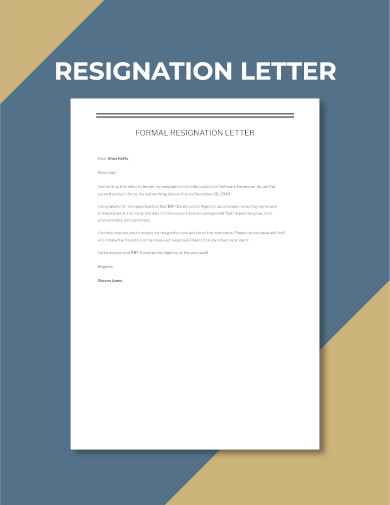
Resignation Letter
download now -
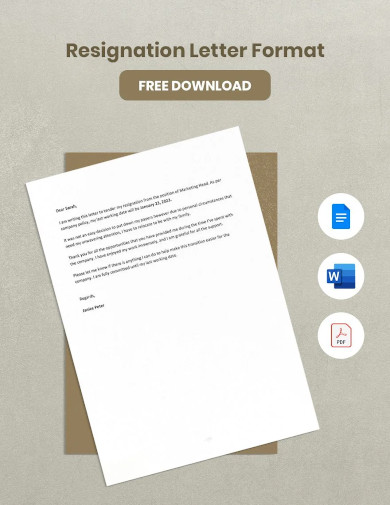
Free Resignation Letter Format
download now -
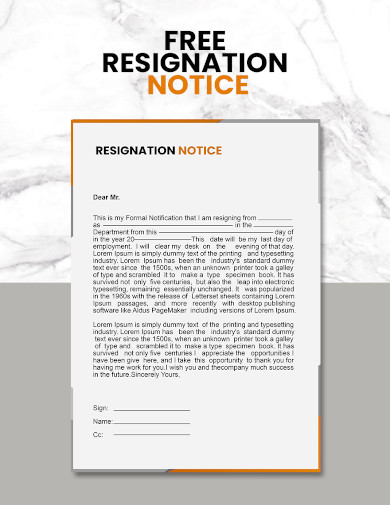
Free Resignation Notice
download now -
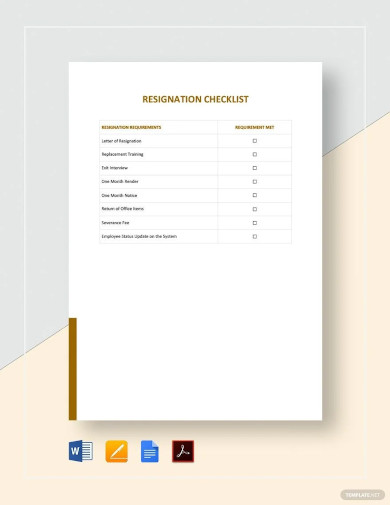
Resignation Checklist
download now -
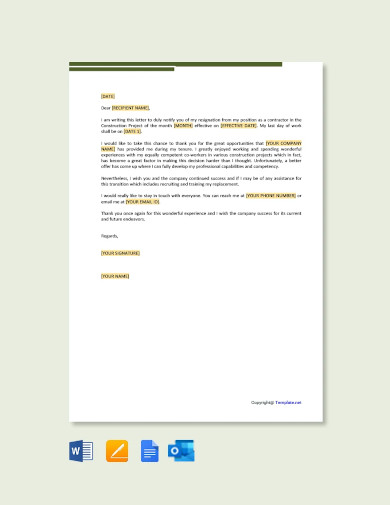
Free Contractor Resignation Letter
download now -
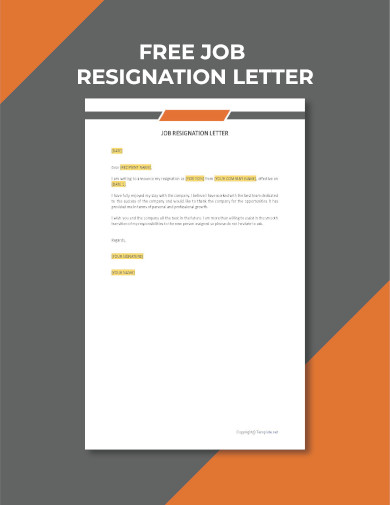
Free Job Resignation Letter
download now -
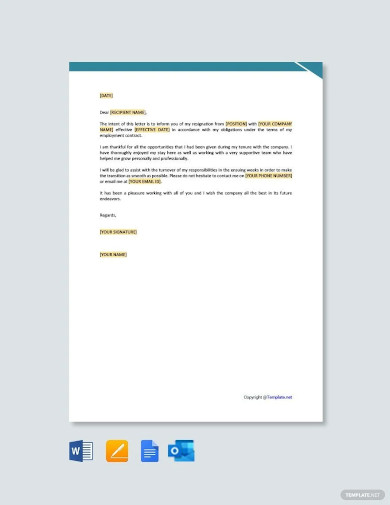
Free Official Resignation Letter
download now -
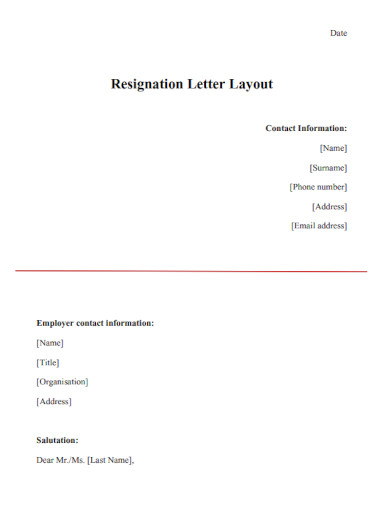
Resignation Letter Layout
download now -
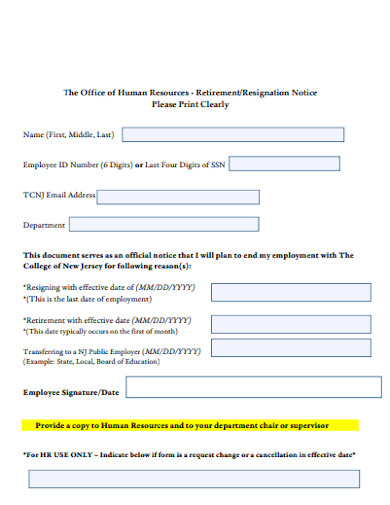
Human Resource Resignation Notice
download now -
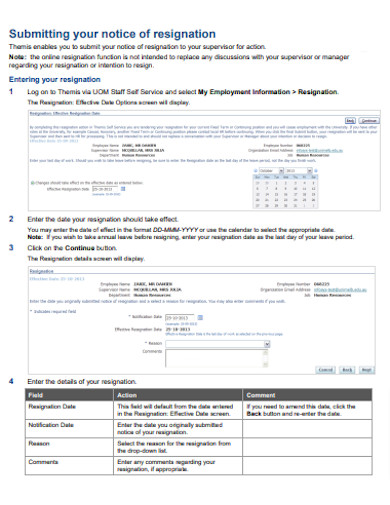
Simple Resignation Notice
download now -
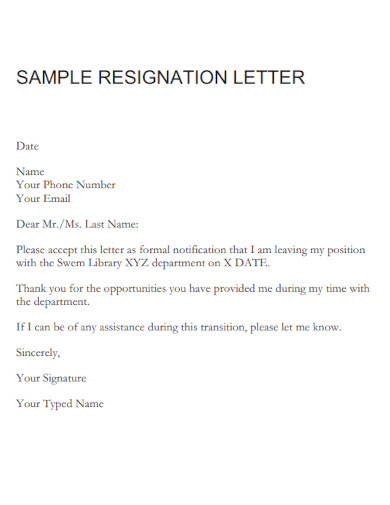
Employee Resignation Basic Letter
download now -
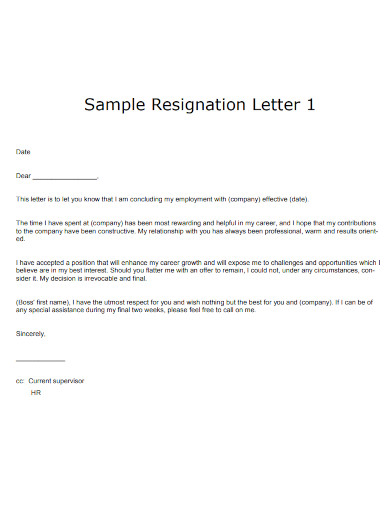
Company Employee Resignation Letter
download now -
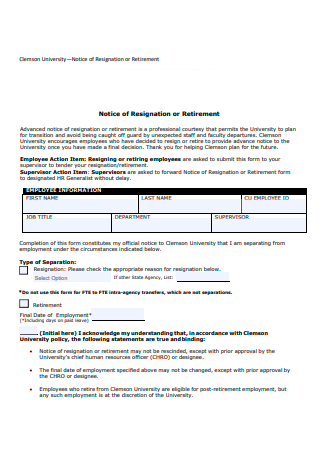
University Notice of Resignation
download now -
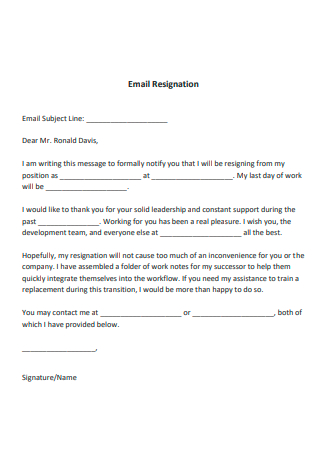
Resignation Email Format
download now -
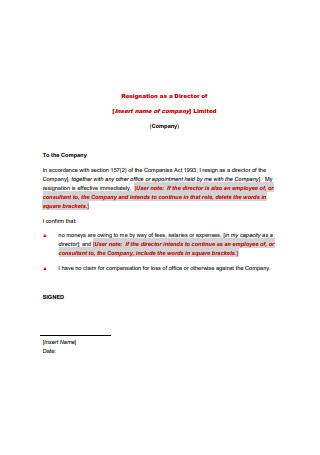
Resignation as a Director
download now -
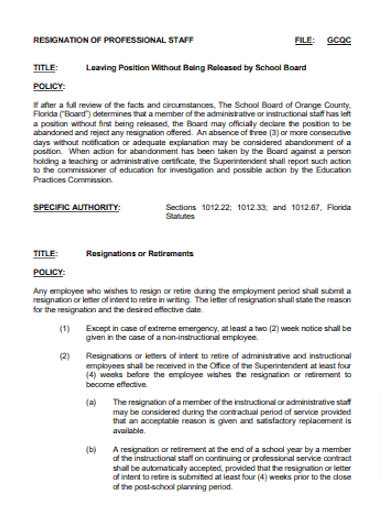
Professional Resignation
download now -
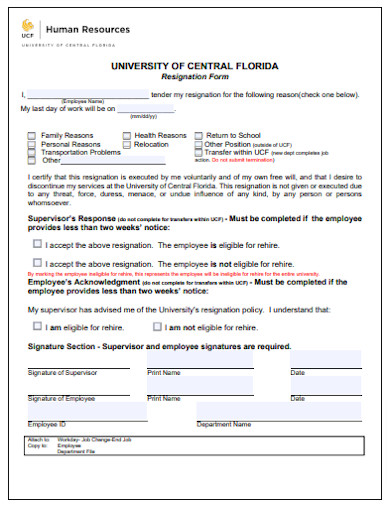
Resignation Form
download now -
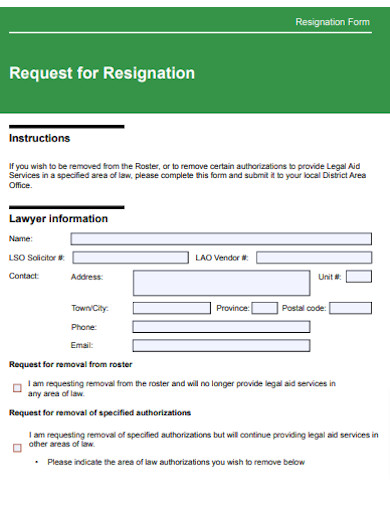
Request for Resignation
download now -
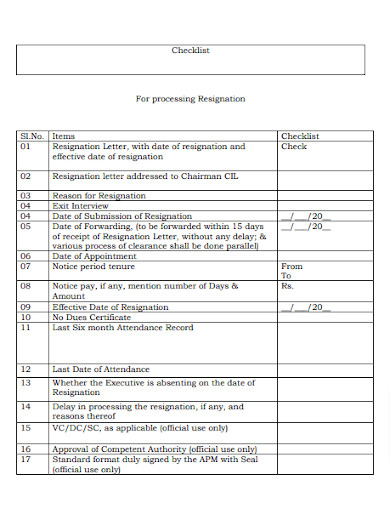
Processing Resignation
download now -
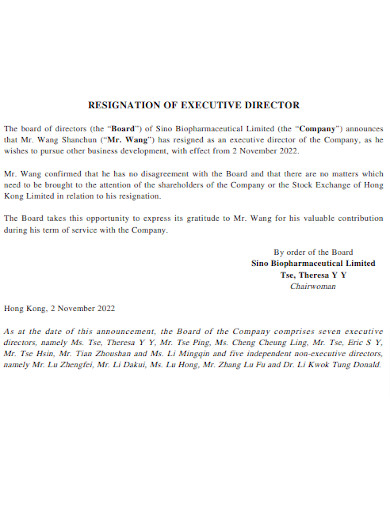
Resignation Executive
download now -
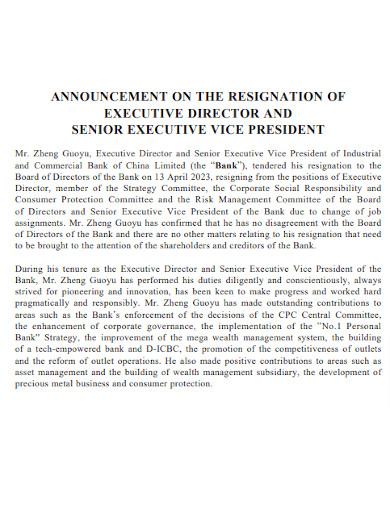
Simple Resignation
download now -
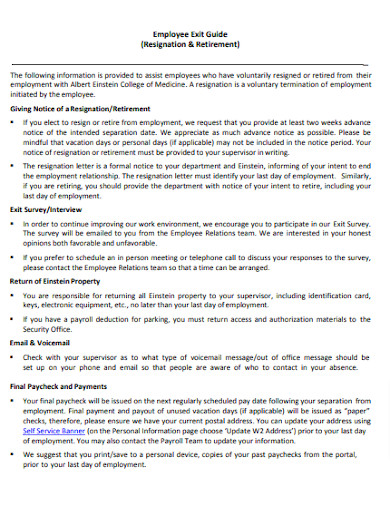
Employee Resignation
download now -
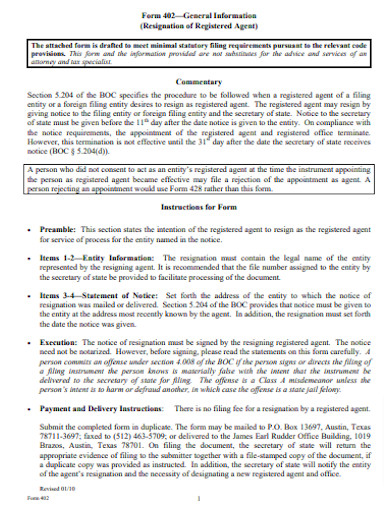
Resignation of Registered Agent
download now -
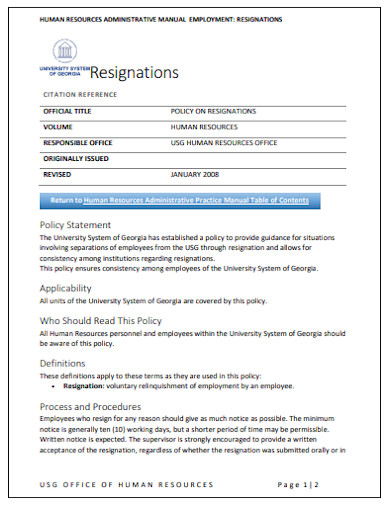
Basic Resignation
download now -
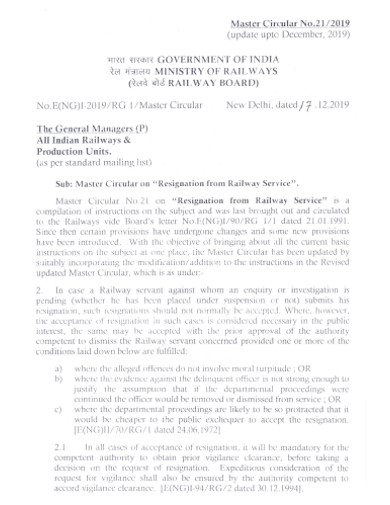
Resignation from Railway Service
download now -
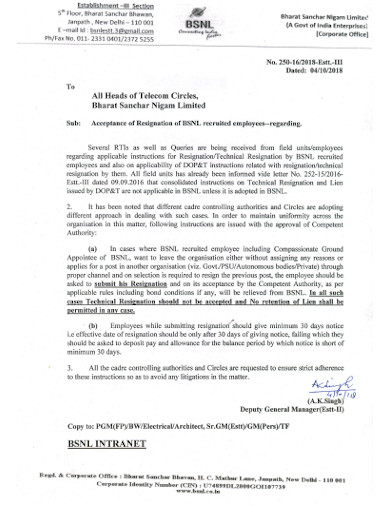
Printable Resignation
download now -
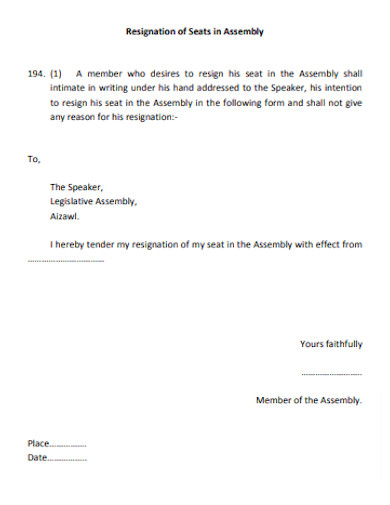
Resignation of Seats in Assembly
download now -
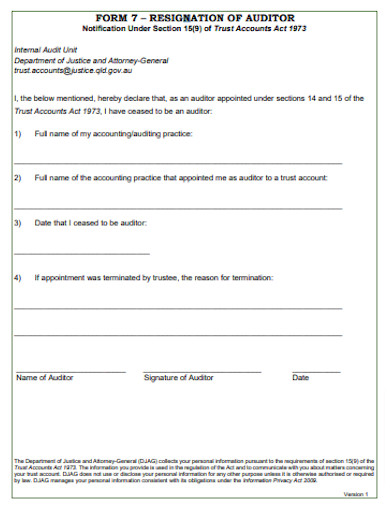
Auditor Resignation
download now -
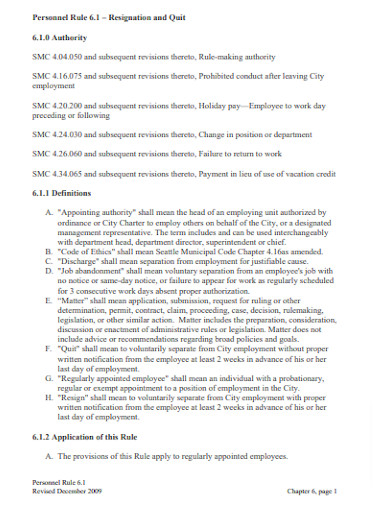
Personnel Resignation
download now -
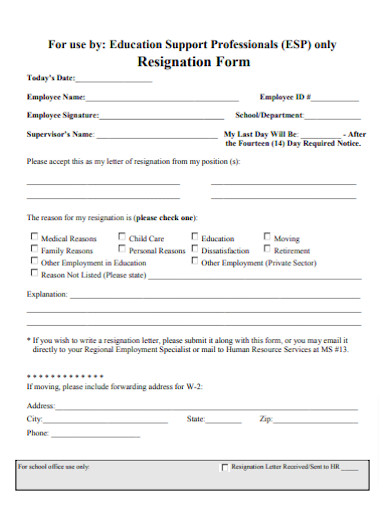
General Resignation
download now -
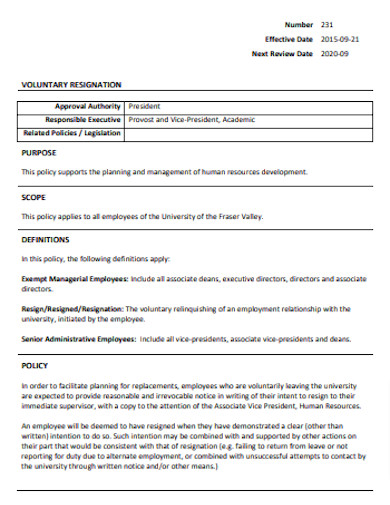
Voluntary Resignation
download now -
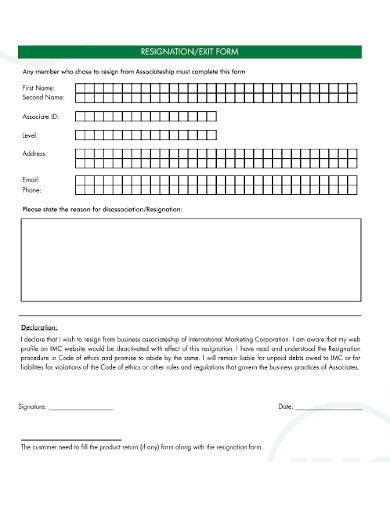
Resignation Outline
download now -
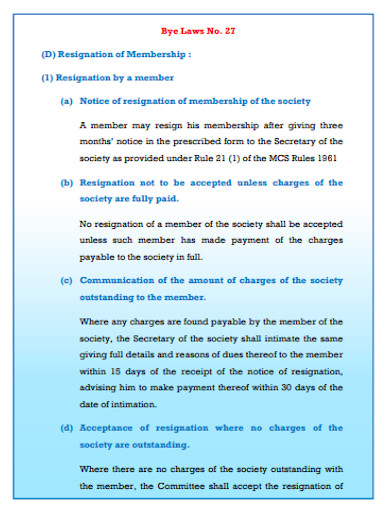
Membership Resignation
download now -
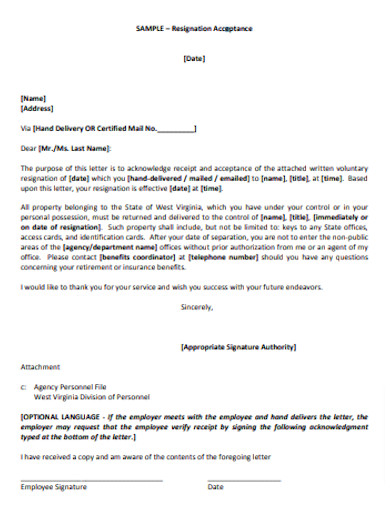
Acceptance Resignation
download now -
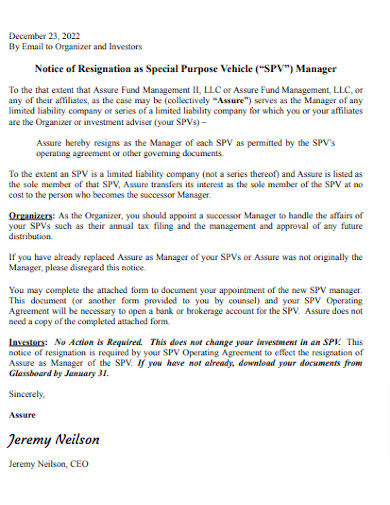
Manager Resignation
download now
What Is a Resignation?
Resignation is the formal and voluntary act of notifying one’s employer or administrator of one’s intention to leave a specific job or position within an organization. It is a written or verbal notice of the employee’s intention to quit their current position. It is typically accompanied by a notice period during which the employee is expected to continue working until the departure date. When employees resign, they effectively terminate their employment contract with the organization. There are numerous reasons for resignation, including pursuing new career opportunities, personal growth, dissatisfaction with the current employment or workplace, family obligations, and retirement.
Benefits of Resignation
The benefits of resignation can be substantial and have favorable effects on both the individual and the organization leaving. Overall, resignation can be a positive and transformative experience that opens doors to new opportunities and development avenues. It enables people to take command of their careers and life, ensuring they continue to evolve and flourish along their chosen path. Among the main advantages are:
Tips Before Qutting Your Work
Leaving a job requires careful consideration and planning to make the correct choice. You can quit your employer on a positive note and develop a plan for your next career move if you prepare thoroughly for your departure. Several steps must be taken before resigning a job to prepare for your departure. These stages may assist you in evaluating your decision, formulating a plan for your future career endeavors, maintaining your professional relationships, and facilitating organizational changes as efficiently as possible:
1. Analyze Your Choice
If you still need to submit your resignation to your employer, you should determine whether resigning is best. Determine whether there are internal options for a career change, such as switching positions, requesting a raise, or requesting a new work schedule. Often requiring less effort than ceasing, these alternatives may help you achieve the renewed satisfaction you seek. Considering your options may help you gain confidence. Specify what you expect to achieve by leaving your current position before quitting. By identifying the requirements influencing your decision to finish, you can gain a better sense of your career goals and aspirations. You can more easily formulate a plan for your prospective job search from this location.
2. Form a Plan of Action
Think about your intentions after you quit your job. Determine your professional requirements, determine your desired career path, determine how you will support yourself financially in the interim, and create a job search plan. Evaluate your preferences for a new role, whether you wish to take time off between parts, and how you can make this feasible from a logistical standpoint. During your role, document your responsibilities and accomplishments in real-time to accurately represent your experience. Doing so while you are currently employed can prevent future insecurity. You can construct an exhaustive list of actions to include on your sample resume when applying for new jobs from this page.
3. Ask for Recommendations
In specific fields, your application may require professional recommendations or talent endorsements. Before quitting your employment, request recommendations from your colleagues or supervisors. Requesting this letter or favor before leaving the role or company may increase their willingness to assist and simplify obtaining the suggestions you need. Also, the protocol for resignation in the workplace may vary between organizations. Examine the procedure for resigning as outlined in your employee manual or contract. Your employer may request that you provide notice within a specific timeframe or submit a sample letter expressing your intent to depart your position. Employer-employee relationships are typically presumed to be at-will, meaning either party may terminate the business relationship without cause or legal repercussions.
4. Offer to Ease the Transition
Once you’ve informed your supervisor of your intention to depart, you can offer to assist with the transition by locating a replacement, creating guides, or gathering resources. These steps can ensure that your successor understands the scope of their new position and the strategies you employed to achieve success. In addition, it can prevent your coworkers from assuming additional responsibilities, which may hinder their workflow or productivity. Many companies restrict access to email accounts and servers upon resignation to protect their IT infrastructures. Suppose appropriate and not considered company property; attempt to save any personal work samples or examples of non-confidential projects from your time there. This can assist you in assembling a project portfolio to demonstrate your work to potential employers.
5. Express Gratitude
As you prepare to leave your employment, make a concerted effort to express gratitude to your coworkers and supervisor, significantly if they contributed to your professional development or productivity. This courteous and professional action will aid in preserving your relationships beyond your employment at the organization. Moreover, if you want to maintain contact with your coworkers after departing, consider emailing them your personal contact information. Certain organizations require employees to complete specific resignation procedures, such as exit interviews and organizational evaluations. As you prepare to depart, meet with a human resources (HR) representative to ensure your resignation complies with all company policies. When you meet with HR, they may discuss any benefits you may be eligible for as a former employee, such as severance pay, limited health coverage, or payment for unused paid time off.
How to Remain Optimistic and Productive After Leaving a Job
Knowing what to do after leaving employment can be difficult, and maintaining a positive attitude can be crucial. Being optimistic and productive after leaving a job can help you maintain good practices for the job-searching process and for when you begin your next position. Additionally, remaining happy and productive after leaving a job can contribute to your contentment and well-being. In this article, we explain the significance of deciding what to do after you abandon your current position and provide suggestions for remaining positive and productive in the interim. To assist with your career transition, here are a few methods to stay optimistic and productive after leaving your job:
1. Find Balance
Attempt to achieve perspective equilibrium after leaving your job. It can be pleasing to concentrate solely on the conclusion of your previous position; therefore, reminding yourself to devote time to other interests and pursuits can support a more balanced perspective during this time. If you maintain a balanced view, you can channel your energy into tasks such as learning a new skill or searching for new employment.
2. Celebrate Your Self
Occasionally, it cannot be easy to distinguish your identity from your occupation. After leaving your previous position, attempt to commemorate your entire, unique, individual self. Recognizing and valuing the aspects of your identity outside of your career can help you maintain a positive attitude and enjoy the job search ahead if you seek another position. Consider generating a list of your most positive characteristics or discussing your strengths with a trusted companion or mentor. After leaving employment, reflecting on your professional accomplishments and successes can be beneficial.
3. Spend Time Resting
Leaving employment can also provide an opportunity for physical and mental rest. If your job is physically demanding, you could use this time to let your body recuperate. This can help you keep a positive attitude by enhancing your physical and mental health, and it can boost your productivity by permitting you to be as healthy as possible when you begin a new position. If your previous post was mentally taxing or demanding, taking this time off will allow you to focus on your health.
4. Update Your Application Materials
After departing a job, updating your application materials, including your resume and cover letter, may be a good idea. Your prior accomplishments and experiences will be fresh, and you will likely have a decent idea of what you seek in your next position. Consider revising and editing your current application materials and updating your personal and professional social media at this time. Focusing on the positive aspects of your most recent experience and turning to the future can help you remain optimistic and productive when leaving a job.
FAQs
How do you humbly resign from a job?
It is best to resign in person, giving your current employer as much notice as feasible. If you work from home and must resign immediately, the next best option is a video call. Before notifying your coworkers, schedule a quiet, reasonable time to meet with your manager.
Is it better to resign or quit?
In most cases, quitting and resigning from a job mean the same thing: you have no longer chosen to have that job. Resign is more appropriate in formal contexts, but quitting is also permissible in serious writing.
Is it a good decision to resign?
If you are dissatisfied with your current position, consider quitting to pursue a more fulfilling career in a different industry or work environment. Before leaving your employment due to dissatisfaction, consider all the factors that may impact your decision, such as your financial situation.
Regardless of your position, be courteous in your resignation letter, explain why you’re departing, and specify who you’re informing. Even if you’re leaving for unfavorable circumstances, you shouldn’t go on a sour note. Drawing inspiration from these resignation samples and templates will preserve your professional network and bridges as you embark on your next endeavor.
